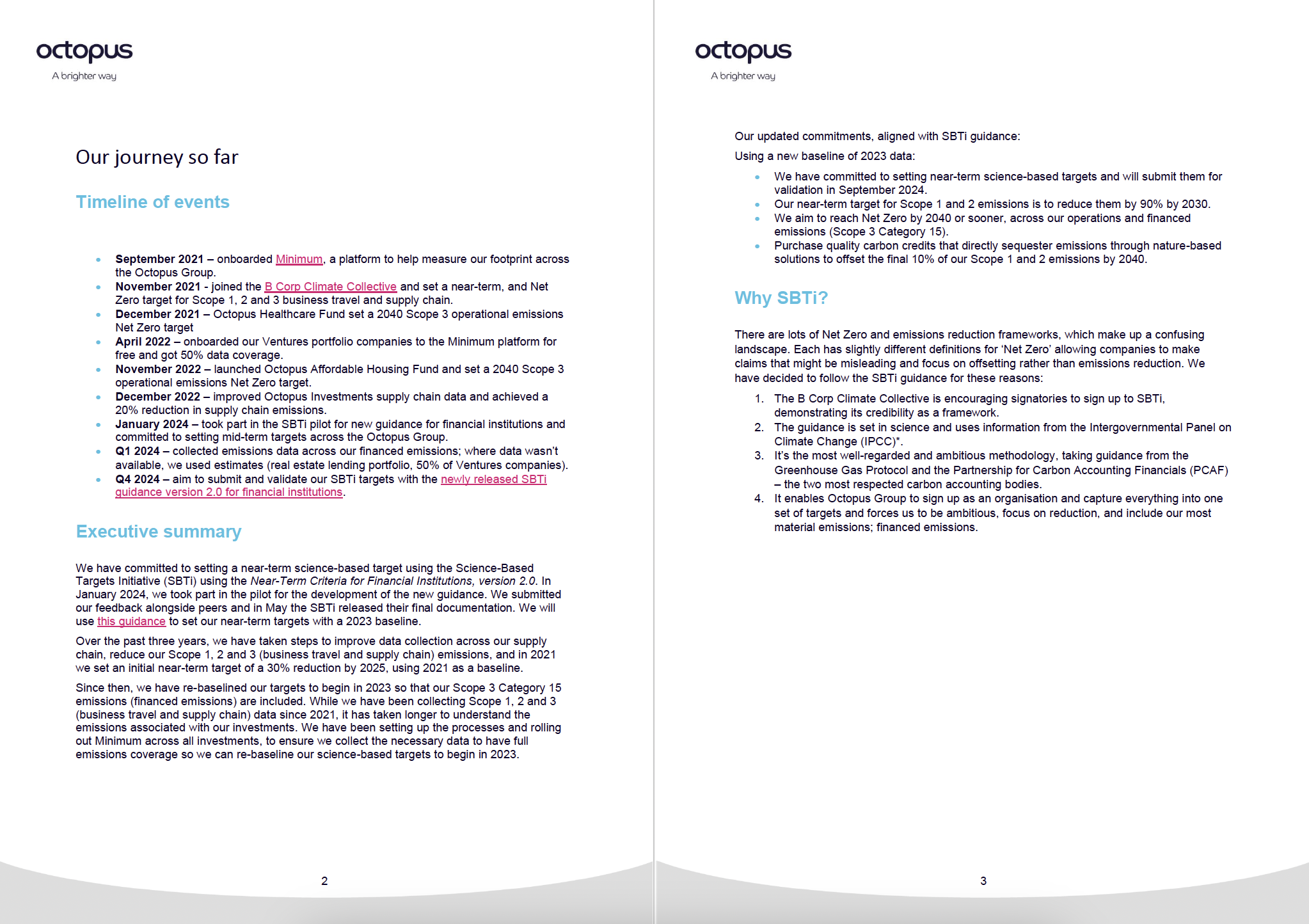Reaching Net Zero
An update on our progression towards Net Zero.
Why Net Zero?
Our updated commitments, aligned with Science-Based Initiative (SBTi) guidance:
Using a new baseline of 2023 data:
- We have committed to setting near-term science-based targets and will submit them for validation in November 2024.
- Our near-term target for Scope 1 and 2* emissions is to reduce them by 90% by 2030.
- We aim to reach Net Zero by 2040 or sooner, across our operations and financed emissions (Scope 3 Category 15).
- We will purchase quality carbon credits that directly sequester emissions through nature-based solutions to offset the final 10% of our Scope 1 and 2 emissions by 2040.
The journey so far
- In 2021, we signed up to the B Corp Climate Collective – launched by B Corp at COP26, to encourage B Corps to aim to reach Net Zero by 2030.
- We set a Net Zero 2030 target for our operational emissions and business travel and supply chain.
- Since then, the B Corp Climate Collective has partnered with SBTi, and encourages signatories to use SBTi guidance to set emissions reduction targets.
- The SBTi guidance is the industry-leading standard. It means widening the scope of our target to include financed emissions, which is a significant enhancement and a lot more challenging. Each asset class will set targets using the relevant SBTi methodology (i.e. SBTi portfolio coverage, Sectoral Decarbonisation Approach and Temperature Alignment).
- Octopus won a place on the pilot for new guidance for financial institutions, which allowed us to feed into and ensure it is fit for purpose. The new guidance was released in May 2024 and we have committed to setting our targets this year (2024).
*A reminder of the Scopes:
Scope 1: direct emissions controlled by Octopus Group companies.
Scope 2: indirect emissions from purchased electricity, steam and cooling.
Scope 3 Category 1-15: indirect emissions resulting from our activities. Category 15 emissions are from our investments which are by far the most material, forming around 70% of our footprint.
